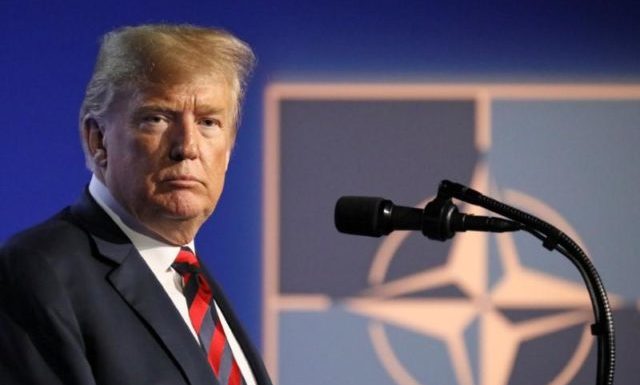Trump’s Openness Is Forcing A Stronger NATO And Europe

The American people and the world are witnessing a revolution of openness brought on by none other than the frank, brusk, always to the point methods of President Trump.
This was on full display this week as Trump held public press conferences with world leaders during the NATO meeting in London, and repeatedly had shockingly open and honest discussions — the things that have always been kept behind closed doors in the past, and then reported via leaks through a partisan media.
Trump’s method forces difficult issues out into the light without the bias filter.
With French President Emmanuel Macron, Trump pushed again on the issue of NATO and the Europeans’ unwillingness to keep their promises on spending. The NATO agreement called for all member countries to spend 2 percent of the GDP on military spending. This was done to ensure that there would be no free-loader countries.
Turns out, they have almost all been freeloaders — a freeloader continent — because of the major countries, only the United States has kept its promise, and actually spends more than twice that. This is part of the reason Europeans can afford broader welfare programs, because they aren’t spending the money on their own defense. American taxpayers are, and now that Trump alone has made this an issue, a whole lot more Americans are aware of this truth.
Trump’s relentless efforts are having an impact. NATO Secretary General Jens Stoltenberg told Congress a few months ago that Trump’s push had a “real impact” as European allies are adding military investments totaling an additional $100 billion by the end of next year.
Further, Turkey’s increasingly rogue and anti-West actions are making it a problematic member of NATO. It was considered a good addition during the height of the Soviet Union’s threat as it created a southern buttress to Soviet expansion. But the Muslim nation has lurched toward a more Islamist and less free society, has been persecuting minorities, has been making overtures to Russia for an alliance and recently invaded Northern Syria when the U.S. pulled out its troops.
Trump’s methods and personality has exposed this and now there is serious talk about what to do with Turkey.
In another press conference, Trump cornered Canadian Prime Minister Trudeau into admitting Canadian military expenditures amount to a paltry 1.4 percent of GDP. Canada too promised 2 percent as a member of NATO. This willingness of Trump to put foreign leaders on the public hotspot is refreshing, revealing and productive.
His push on Europeans doing more for NATO has caused some to talk openly of a European Union Army to replace NATO. But this is delusional. First, Germany, France, Italy, Poland, Spain and so on forming a cohesive fighting army is historically absurd, particularly without the U.S. leadership. Someone has to lead and Germany is obviously the leader of the EU. The French Army is going to take orders from the Germany Army? Non, je ne pense pas.
Second, there is no way the Europeans realistically could, or would be willing to spend the amount of money necessary to create an army of deterrent power without the United States. They’d have to strip back their welfare systems. No politician wants to do that.
This on-the-ground reality is understood by sober people. But Trump’s willingness to speak his mind on camera, with other leaders, and even push them on live, global television, means that the world — and most importantly, the American people — can see it all happening. If we had to rely on the media to accurately transmit this information, it would merely be a story about how dangerous Trump is in destroying relationships and systems.
But what we now know is that it’s not the true rendering. In reality, these have been fraying relationships without a Soviet Union all along. It’s an added problem that Europeans don’t pay their fair share and that Turkey is going rogue. But the media would largely ignore all of this and just focus on the blunderbuss that is an “existential threat.”
Looking at a post-modern security structure, where the U.S. can adequately and fairly assess our own security needs, is overdue. These needs range from fair trade agreements with China, Europe and our North American neighbors, to full-scale security on our southern border, to military security as we see fit.
We should always be allied in some fashion with the free democracies of the world, and that means most of Europe and certainly the big countries. NATO may or may not be the proper method for that anymore. If it is, it will almost undoubtedly become a more meaningful mutual security organization without Turkey and with more committed spending and focus.
That would be an ironic legacy for Trump on NATO, but not an unrealistic one.
EDITORS NOTE: This Revolutionary Act column is republished with permission. © All rights reserved.


Leave a Reply
Want to join the discussion?Feel free to contribute!